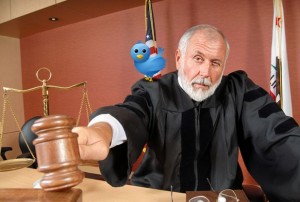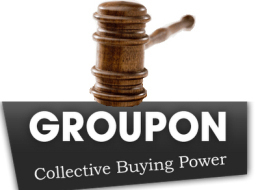Generation Y consumers, myself included, experienced the birth of social media right before their eyes. This online medium has changed the way brands interact with their customers, but it has also raised flags for marketers about the legal implications behind social media. Today, a brand without a social media presence is considered out of touch by its peers (Baird & Parasnis, 2011). But how can companies protect themselves from the public and ever changing nature of social media, so they are not caught in a possible lawsuit?
A recent article in the Social Media Monthly magazine, gives some perspective on things to consider before companies jump the social media gun. According to the piece written by Kyle-Beth Hilfer, an attorney who specializes in marketing, advertising, and intellectual property, preparation is the key to success (Hilfer, 2013). Hilfer suggests that marketers and the legal counsels work together as a social media strategy is developed.
How many of us have ever signed a contract or legal waiver without thoroughly reading the fine print? For brands, Hilfer says, not reading the fine print would compare to ignoring the Terms of Service of existing social media sites (Hilfer, 2013). A large part of what attracts brands to create a presence in social media sites is the ability to gain consumers’ feedback in real time. According to the article, in 2009 the Federal Trade Commission (FTC) introduced some regulations urging companies to identify whether consumer feedback through social media was being done independently or if the consumer received a reward for endorsing the brand; rewards are not limited to cash, but can include coupons and gift cards (Hilfer, 2013). The article cites a case in 2011, where the FTC awarded $250,000 in damages to bloggers. It is important for brands to monitor their social media sites closely, to lessen the risk of violations and legal damages.
Hilfer also suggests brands should be savvy about protecting their own intellectual property (Hilfer, 2013). Groupon, who recently fired its CEO Andrew Mason, is an example of what not to do. A recent article in Forbes magazine, explains Groupon is at a disadvantage because it doesn’t own intellectual property since its main business is an idea, as opposed to a product (Forbes, 2013). In addition, Groupon also faces a number of patent lawsuits disputing its coupon practices.
Hilfer goes on to advice brands to be cautious of who is in charge of setting up their social media pages and developing content. More importantly brands must assess if they would like the assert ownership of the content, in the event an employee resigns or is terminated. The article also suggests the brand should have control of the passwords and management of each site (Hilfer, 2013). A system to control harmful and disrespectful language must be established. More importantly training for employees should be made available, so they learn how to separate their personal social media presences versus the company’s page (Hilfer, 2013).
In your opinion, when it comes to social media or blog content that is employee generated who should have ownership over this material, the brand or the employee?
By Allison Cordova (CMGT541 Section B)
References
Baird, C.H., & Parasnis, G. (2011). From social media to customer relationship management. Strategy & Leadership, 39(5), 30-37.
Jacobs, L. D. (2013, March 1). Firing CEO Andrew Mason Won’t End Groupon Woes. Forbes. Retrieved March 3, 2013, from
http://www.forbes.com/sites/deborahljacobs/2013/03/01/firing-ceo-wont-end-groupon-woes/
Hilfer, K. (2013, ). Fearlesss Marketing: Key legal issues in branding on social media. Social Media Monthly, January/February 2013, 37-40.



8 Responses to The Legal Risks of Branding on Social Media